It is normal to not sleep well in a period of stress!
It is normal that the COVID-19 crisis can cause stress, anxiety, fear and even depression. It is also possible that your sleep will be disrupted during this time, no matter what your age.
Sleep experts are advising that you pay particular attention to your sleep habits and needs during this period of uncertainty. Why? Because a good sleep in both quality and quantity will be beneficial for managing your stress and your emotions as well as your physical health.
During this period of upheaval, sleep is our ally and a protective force at our fingertips. Let’s use it.
Here are nine steps for adults to protect your sleep during this period of crisis.
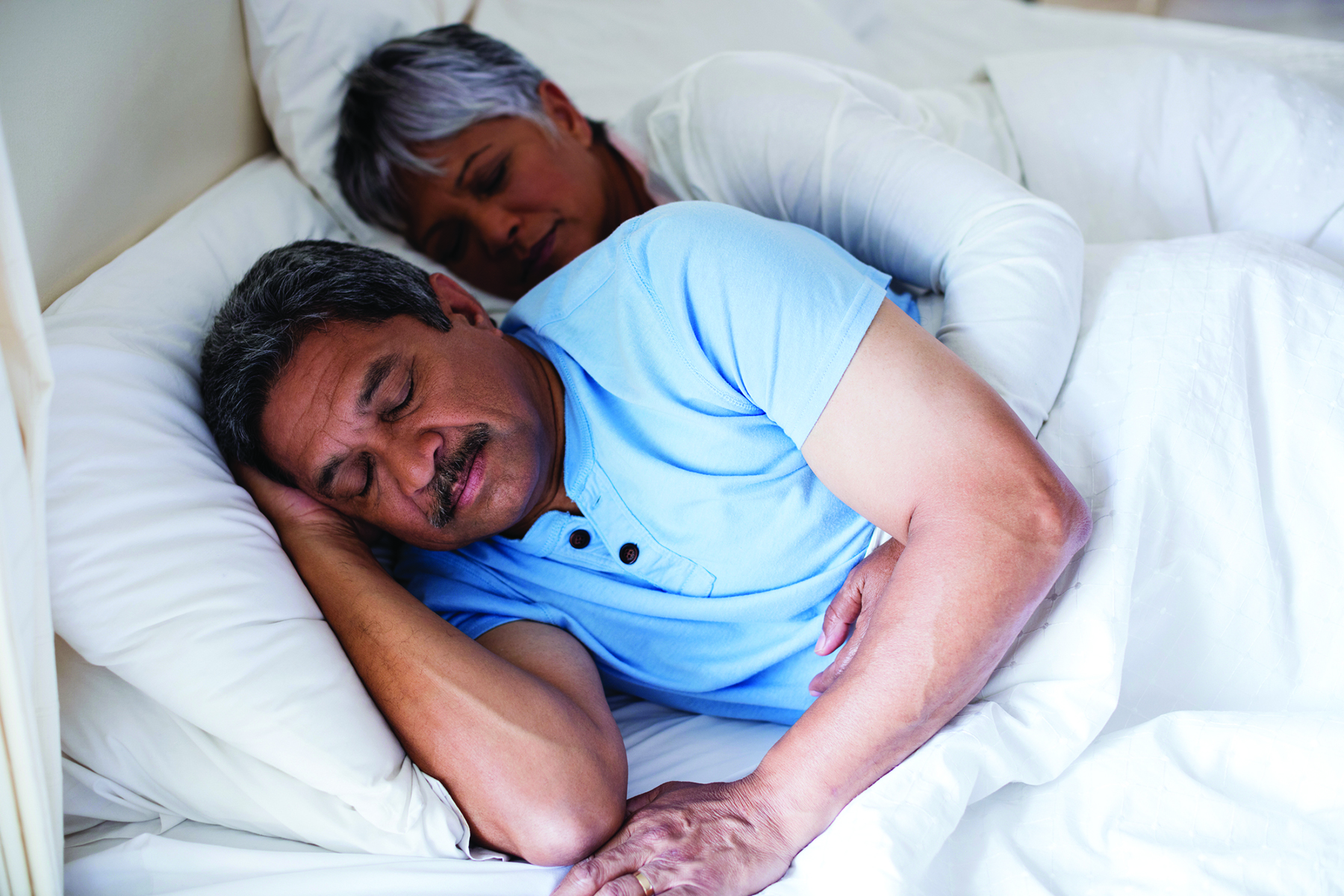
1. Make your sleep a big priority by ensuring you obtain the sleep you need by getting at least seven to eight hours per night.
You have probably neglected your sleep for a long time because of many reasons (work, family, obligations, etc.) For most of us who now have to stay at home, this time can (at last!) be used to make sleep your priority. It’s time to allow yourself to sleep more hours if you feel the need.
Depending on your age, your need for sleep can change. For more information: “Sleep, a personal and evolving natural need” and “Age-specific dos and don’ts”
2. Keep normal bedtime and wake times.
These days, it is difficult for many people to keep a regular bedtime and to maintain normal daily activities. Because of our biological clock, our body and our brain respond well to routine. Respecting a regular sleep-wake schedule can be beneficial not only for the quality of your sleep but also for regulating your daytime activities. Perhaps this is a good opportunity for you to experience the benefits of a regular sleep schedule. To try it, we recommend you go to bed and wake up at the same time (plus or minus 30 minutes) every day of the week, even during the weekend.

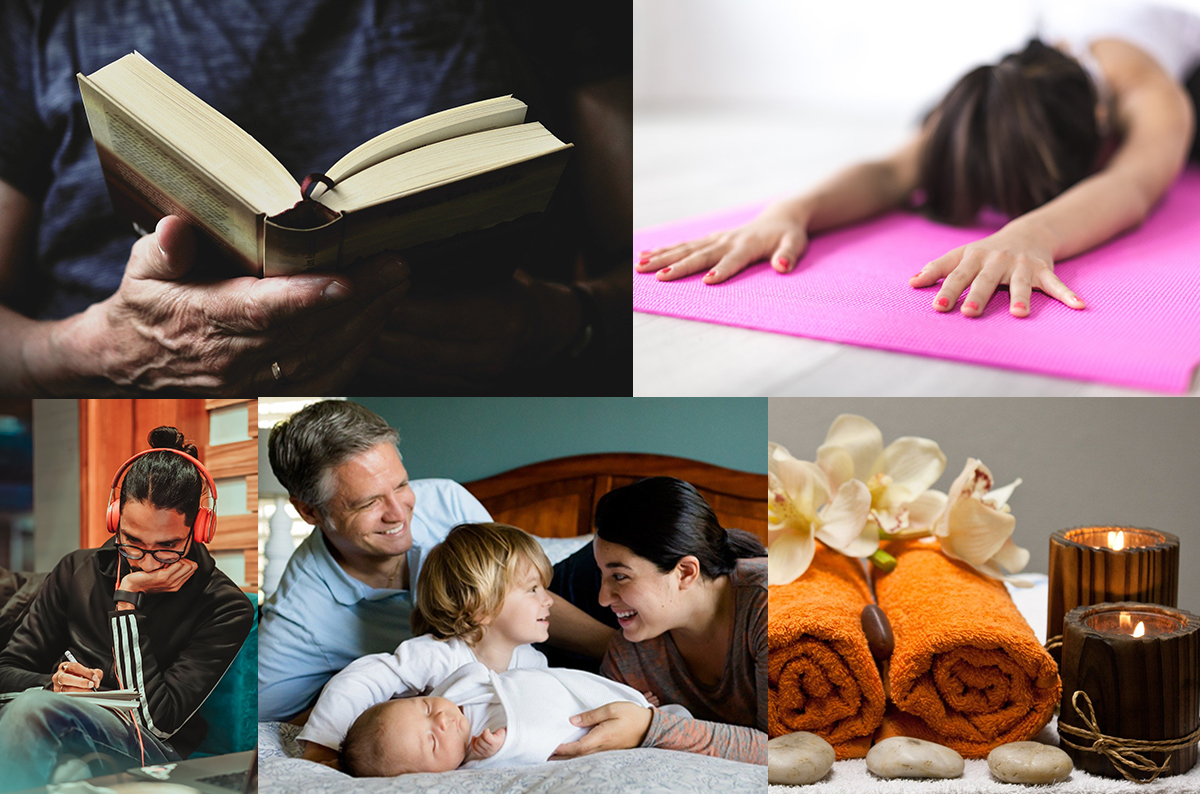
3. Establish a routine before bedtime.
In setting aside at least an hour to relax before going to bed and by establishing a relaxation ritual, you will be in the right frame of mind to fall asleep. You can use this time to take a bath, read, listen to some calm music, or even practice a method of relaxation or meditation. No matter which activity you choose, you should do it outside your bedroom. These calming activities are beneficial and allow you to reduce any anxiety and also, they will enable you to fall asleep.
4. Stay away from using any kind of electronic devices in your bedroom or at bedtime.
Your desire to stay informed is normal. However, it’s advised to reduce the number of different sources of information on COVID-19, to instead choose reliable news outlets and to reduce the number of times per day you listen to the news. It is also strongly advised to listen to the news during the day in order to avoid listening in your bedroom before going to sleep. It is also suggested that you don’t read articles about COVID-19 on your tablet in bed.
Why? Because exposing yourself to a variety of news sources and articles on COVID-19 quickly leads to anxiety. By avoiding the news in your bedroom, this special place becomes less associated with stress resulting from your reading. In addition, even elsewhere in your home, we advise you not to read about the crisis in the evening nor just before going to sleep!
Turn off all your electric devices and sound notifications and don’t look at them during the night.
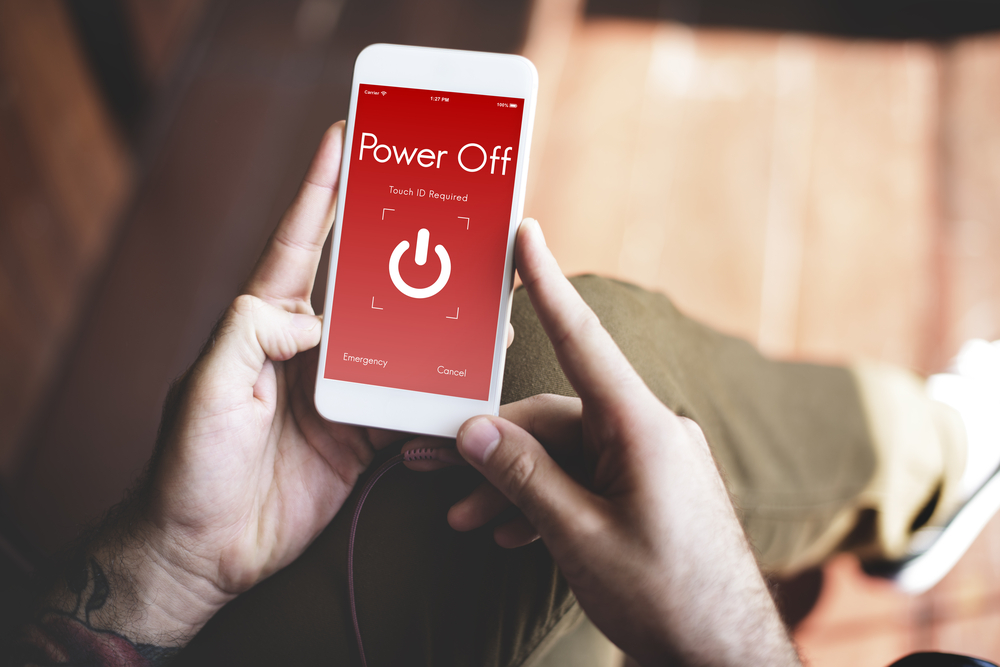
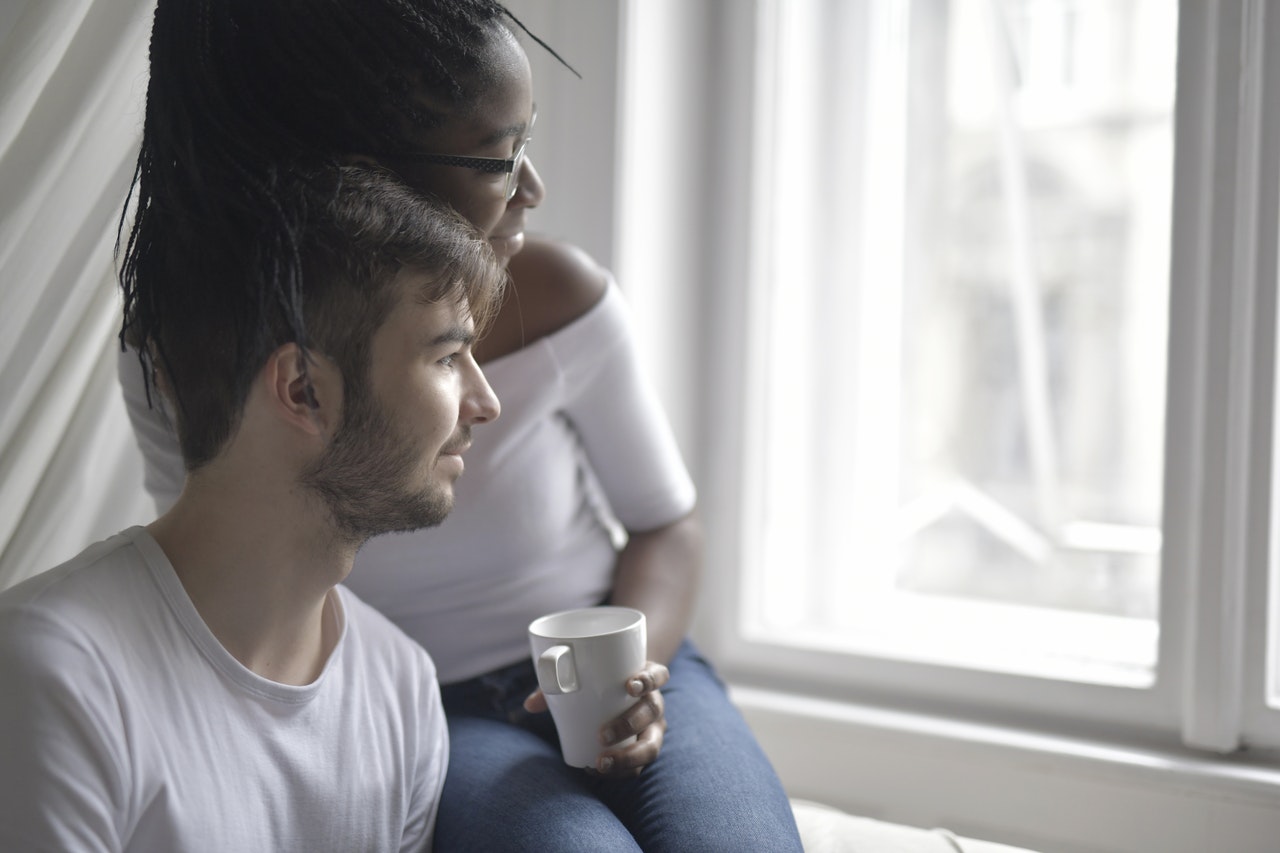
5. Expose yourself to light.
During the day, think about seeking out exterior light to help your biological clock stay on time. Leave the curtains open during the day and when possible, go out on your balcony or in your garden but remember to follow the social distancing recommendations. During the evening, dim light stimulates melatonin production and therefore enhances your ability to fall asleep.
6. Your healthy lifestyle is also your ally for a good quality sleep!
A healthy lifestyle complements a good quality sleep and includes drinking enough water during the day and eating a balanced diet at regular hours as well as keeping up your physical activities while respecting the new rules of social distancing. Remember that sleep is one of the three pillars of long-term health.

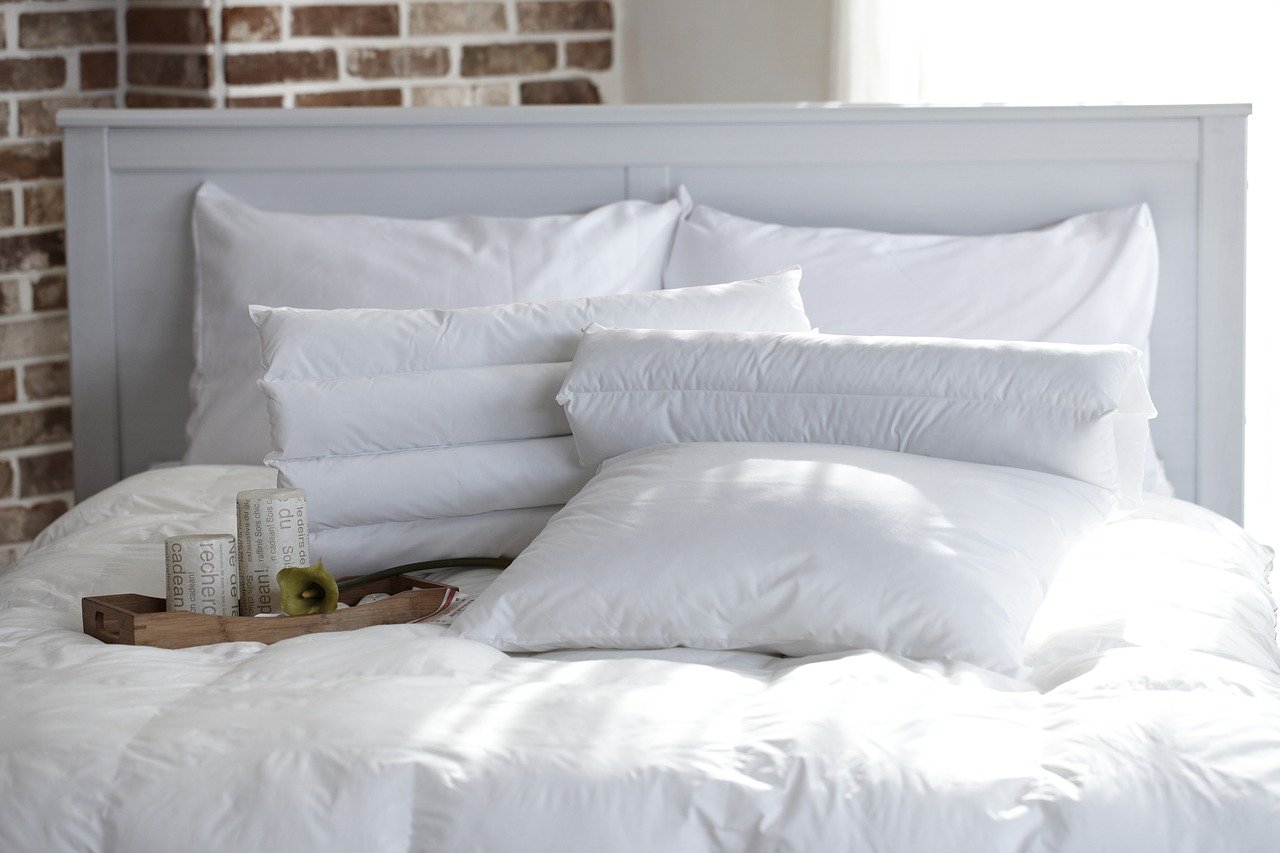
7. Prepare your bedroom for a healthy sleep in a secure and comfortable environment.
Were you dreaming about cleaning your bedroom or rearranging it? Take this time to make your bedroom even more comfortable. This special place can even become a peaceful and serene oasis. Now is the time to reorganise your bedroom. Why not repaint the room if you have access to paint? By adding 2-3 drops of sweet-smelling scents to your linen or comforter, you will experience a feeling of well-being which may help you fall asleep faster. Find the optimal room temperature (your bedroom should be relatively fresh), the right bedding (comfortable!) and the ideal exposure to light (a very dark environment is recommended). Your bedroom should be a safe and secure place, only used for sleep and intimacy.
8. Things to be cautious about or to avoid:
The consumption of stimulants (coffee, tea, energy drinks and nicotine) particularly at night, can have a stimulating effect on the nervous system. They can impede your ability to fall asleep, can cause you to wake up during the night and can reduce the depth of your sleep.

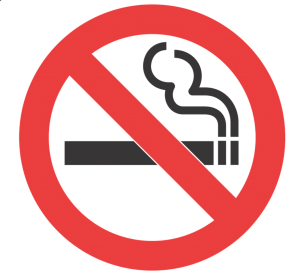
The consumption of alcohol: We often think that consuming alcohol helps us to relax and therefore to sleep better. Even though alcohol can help you to fall asleep, if you live with anxiety, alcohol during the evening lightens sleep and can wake you up often or too early in the morning.

Exposure to anxiety-inducing content: Limit watching any content or news that induces anxiousness and anxiety. During the day, establish a reasonable time to watch television and to use tablets and try to select more enjoyable and comforting content. We also suggest to get busy with activities (housecleaning, organizing, home repair jobs, cooking, reading, on-line courses, virtual museum tours etc.). Watching stimulating content in the evening, even if it’s enjoyable, negatively affects sleep. Moreover, it is recommended to turn off all screens at least one hour before sleeping to limit your exposure to their blue light which has a stimulating effect. Blue light can delay the secretion of melatonin, your ally for falling asleep.

Heavy or fatty or spicy meals before going to sleep: These meals that fill us up sometimes cause a slower rate of indigestion or gastric reflux and consequently can lead to poor sleep.

Planning activities for tomorrow just before going to sleep: Take a moment for this just after dinner in order to reduce the chance of becoming overstimulated, or enhancing anxiety at bedtime.



9. Add to your schedule:
Regular physical activities: Thirty minutes of physical activity every day is linked to good quality sleep (and reduced anxiety!) However, you should avoid rigorous physical activity just before bedtime. That’s good news! You can find a number of free online videos and apps which offer suggestions for physical activities as well as a number of free dance courses. Be creative!

Take the time to feel things when it’s the right time. To reduce anxiety and chase away your worries, take an hour (or even 30 minutes) during the day to think about what is bothering you (It’s as if you say to yourself, okay, it’s my time to reflect and to think about what is upsetting me) and after you have done this, set aside the time to write down your concerns and then continue with your other activities. The time you set aside to think about and to write about your worries, will help to alleviate them before going to bed. If you find yourself thinking about your concerns at bedtime, tell yourself, “I will think about this tomorrow when I will set aside some time”.

Social ties with the outside world: With today’s technology, it is possible to speak to friends and family by telephone or by video conferencing. There are even groups on social media that are designed to help combat isolation. Social ties and kind words lift our spirits and reduce anxiety. By reaching out to our loved ones, it allows us make connections, to discover ourselves and to rediscover them. This sense of well-being helps us to sleep better.

Remember that it is normal to have difficulties in the situation that we are all experiencing right now. By applying these recommendations, you can minimize your risk of developing chronic insomnia.
All these proposed practises are beneficial in the long-term.
